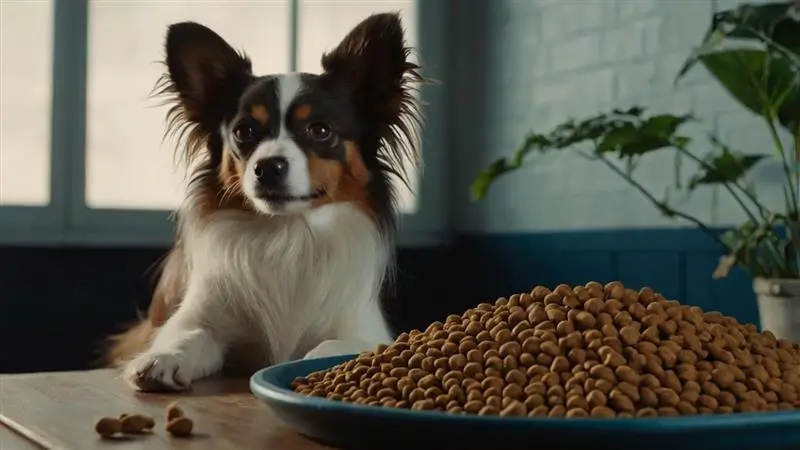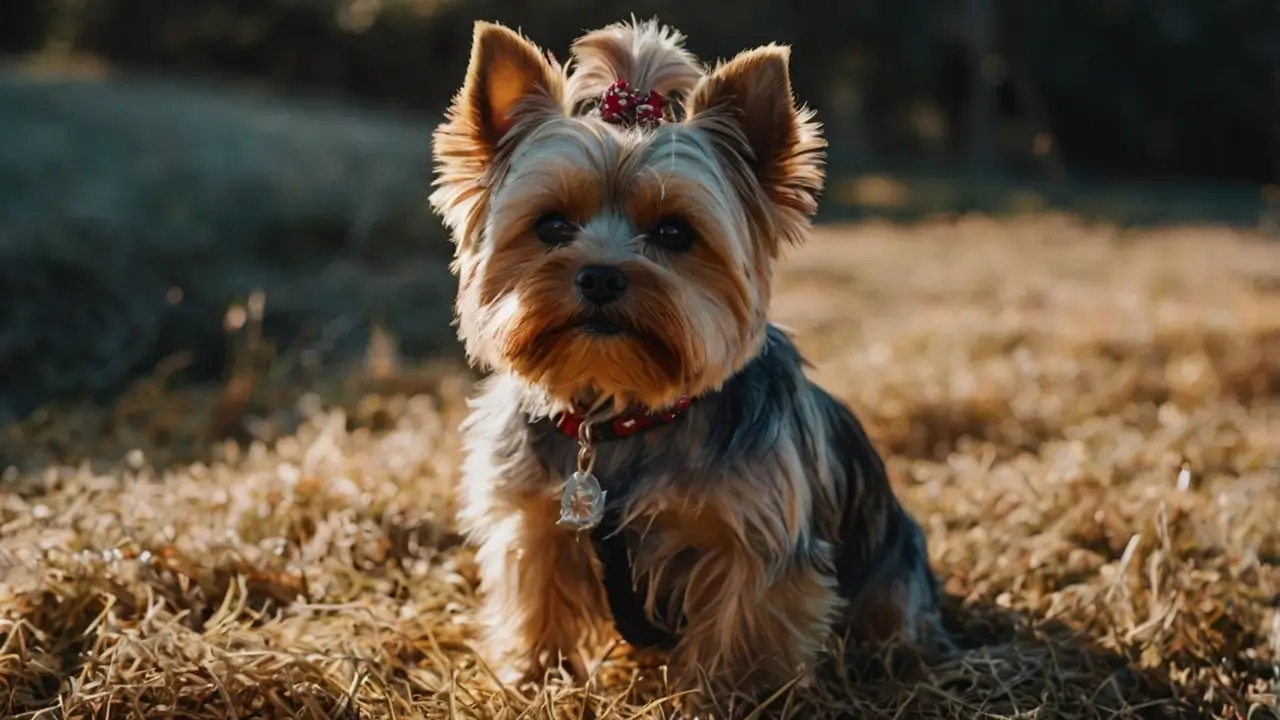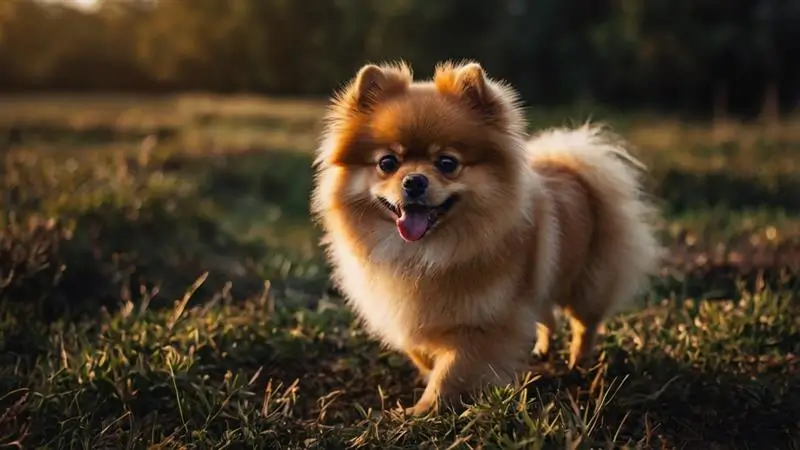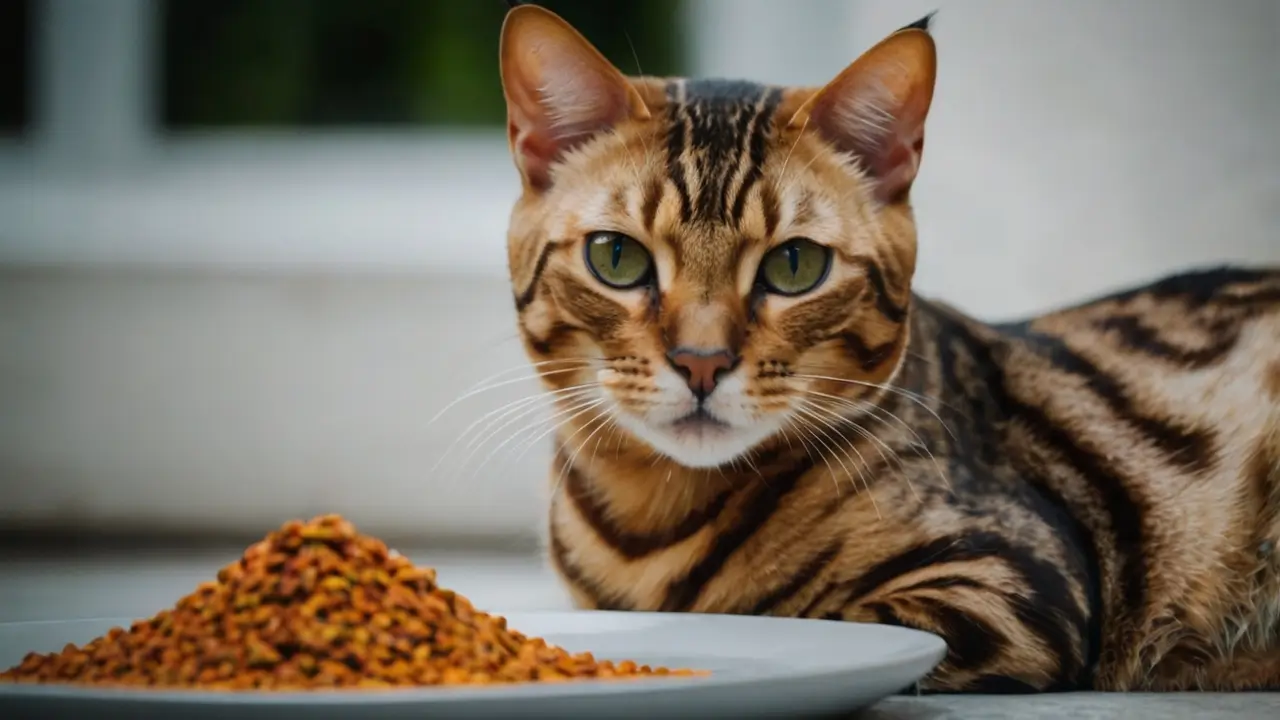Bengal cats are active, muscular, and highly intelligent pets that require a carefully balanced diet to stay healthy. Choosing the right Bengal cat food is not just about filling a bowl; it’s about providing the nutrients that match their wild ancestry and energetic lifestyle.
Whether you are a first-time Bengal owner or an experienced cat parent, understanding the right Bengal cat diet will help you maintain their glossy coat, strong muscles, and playful energy. In this guide, we will explore what do Bengal cats eat, the best food for Bengal cats, and practical feeding tips for both adults and kittens.
Why Bengal Cats Need a Special Diet
Bengal cats are different from most domestic breeds. Their lean body, muscular build, and high activity level demand nutrient-dense food rich in protein. Unlike sedentary cats, Bengals burn calories faster and require more meat-based nutrition.
According to Bengal Rescue, Bengals thrive best on animal protein, with minimal grains or fillers. This is because their digestive systems are adapted for meat rather than carbohydrates.
Key reasons Bengals need a tailored diet:
- High protein requirements (at least 40% of their diet)
- Omega-3 and Omega-6 fatty acids for a shiny coat
- Taurine for heart and eye health
- Low-carbohydrate intake to avoid obesity
What Do Bengal Cats Eat?
When it comes to what to feed a Bengal cat, the ideal choice is a diet that mimics what their wild ancestors would eat.
Bengal cats eat:
- High-quality wet food with real meat as the first ingredient
- Premium dry kibble designed for active breeds
- Fresh raw diets (with veterinary guidance)
- Occasional treats like freeze-dried chicken or fish
Avoid giving them foods that lack nutrients or contain fillers. For example, some pet owners wonder can cats eat bacon. While bacon may seem tempting, it is high in fat and sodium, which can harm Bengal cats.
Bengal Cat Diet: Nutritional Requirements
A balanced Bengal cat diet should cover all essential nutrients. Below is a breakdown of what makes a healthy Bengal meal:
| Nutrient | Role in Bengal Health | Ideal Sources |
| Protein | Builds muscle, supports energy | Chicken, turkey, beef, fish |
| Taurine | Essential amino acid for the heart & eyes | Meat, organ meats |
| Fats (Omega-3 & 6) | Keeps coat shiny & supports joints | Fish oil, poultry fat |
| Vitamins & Minerals | Immunity & bone health | Balanced cat food formulations |
| Moisture | Prevents urinary issues | Wet food, raw diets |
Best Food for Bengal Cats
Not all cat food brands are suitable for Bengals. Since they require protein-rich diets, choosing the best food for Bengal cats means looking at ingredient lists carefully.
1. Best Dry Cat Food for Bengals
Dry food provides convenience and dental benefits. However, it should not be the sole food source. If you are considering kibble, check out this guide on the best dry cat food.
2. Best Wet Food for Bengal Cats
Wet food is highly recommended since it provides hydration and higher meat content. Look for grain-free options with whole protein sources like salmon or chicken.
3. Royal Canin Bengal Cat Food
One of the most popular breed-specific diets is Royal Canin Bengal Cat Food. It is designed to support muscle mass, digestion, and coat health. While it’s convenient and balanced, some Bengal owners prefer raw or high-protein alternatives for a more natural approach.
Bengal Kitten Food: Feeding the Young Bengals
Bengal kittens grow rapidly and need calorie-dense food to support development. Feeding the right Bengal kitten food ensures proper growth, bone strength, and energy.
Key tips for feeding Bengal kittens:
- Choose kitten-specific formulas with at least 40% protein
- Offer small, frequent meals (4–5 times daily)
- Mix wet and dry food for balance
- Avoid cheap fillers and artificial additives
Real-world example: On Reddit’s Bengal Cats community, several Bengal owners shared that kittens thrived best on wet food brands like Weruva and raw diets, with dry food only as a supplement.
Raw Diets and Bengals: Is It Safe?
Some owners prefer feeding Bengals a raw diet since it mimics their natural hunting instincts. Raw diets can be beneficial if properly balanced.
1. Pros of raw diets:
- High in natural protein
- Supports dental health
- Mimics ancestral diet
2. Cons of raw diets:
- Risk of bacteria (Salmonella, E. coli)
- Requires precise supplementation
- Can be expensive and time-consuming
If you plan to feed raw, consult a veterinarian or feline nutritionist to ensure the diet is safe and balanced.
Foods to Avoid for Bengal Cats
Not all human foods are safe for Bengals. Apart from processed meats, owners often ask can cats eat shrimp. While shrimp is safe in moderation, it should never be seasoned or fried.
Here are foods you must avoid giving Bengal cats:
- Onions and garlic
- Chocolate
- Grapes and raisins
- Alcohol
- Caffeinated drinks
- Processed salty meats
Feeding Tips for Healthy Bengals
To keep your Bengal healthy, follow these feeding practices:
- Stick to a routine: feed at the same times daily
- Provide fresh water: hydration is crucial for urinary health
- Measure portions: avoid obesity from overfeeding
- Mix wet and dry food: balance hydration and dental health
- Introduce new foods slowly: prevent digestive upset
Real-World Feeding Example
According to Royal Bengal Cattery, adult Bengals thrive on a 50/50 mix of wet and dry food, while kittens need more wet food during growth.
For example:
- Morning: Wet food (chicken or salmon formula)
- Afternoon snack: Freeze-dried chicken
- Evening: High-protein dry food
- Occasional treat: Cooked shrimp or fish
Best Practices for Choosing Bengal Cat Food
When shopping for Bengal cat food, keep these points in mind:
- Read the label: Look for meat as the first ingredient
- Check protein content: Aim for 40%+
- Avoid fillers: Corn, soy, and wheat provide little value
- Choose breed-specific food: Such as Royal Canin Bengal
- Buy in smaller packs: Prevents food from going stale
Conclusion Bengal Cat Food
Feeding a Bengal cat is more than just filling a bowl. It’s about supporting their wild spirit, strong body, and playful personality. The best food for Bengal cats is always protein-rich, low in carbs, and full of essential nutrients. From Bengal kitten food to adult diets, making smart choices ensures a long, healthy, and active life for your feline friend.
If you’re unsure about the right food, start with high-quality wet food, supplement with dry kibble, and consult your vet for tailored advice. Remember, the right Bengal cat food keeps your cat not only healthy but also happy.
FAQs
1. Can Bengal cats eat eggs?
Most active and lean breeds, such as Maine Coons, Bengal Cats, and Ragdoll Cats, can benefit from the high protein and fat content in eggs. These nutrients help maintain their muscle mass, energy levels, and overall health.
2. Can Bengal cats eat rice?
Most Bengal cats have difficulty digesting these cereal products. It is therefore strongly recommended to feed them quality food without grains.
3. Can Bengal cats eat cooked beef?
A Bengal cat should be fed mostly raw products. Even short boiling can decrease the amount of nutrients in meat and make proteins harder to digest.
4. Can a Bengal cat drink milk?
Bengal cats are lactose intolerant, like most breeds. The feline’s metabolism has adapted to a meat-exclusive diet, so excessive amounts of carbs can give them stomach problems. If your cat drinks a lot of milk, they can experience vomiting, diarrhoea, and abdominal pain, but that doesn’t mean they’re allergic.








